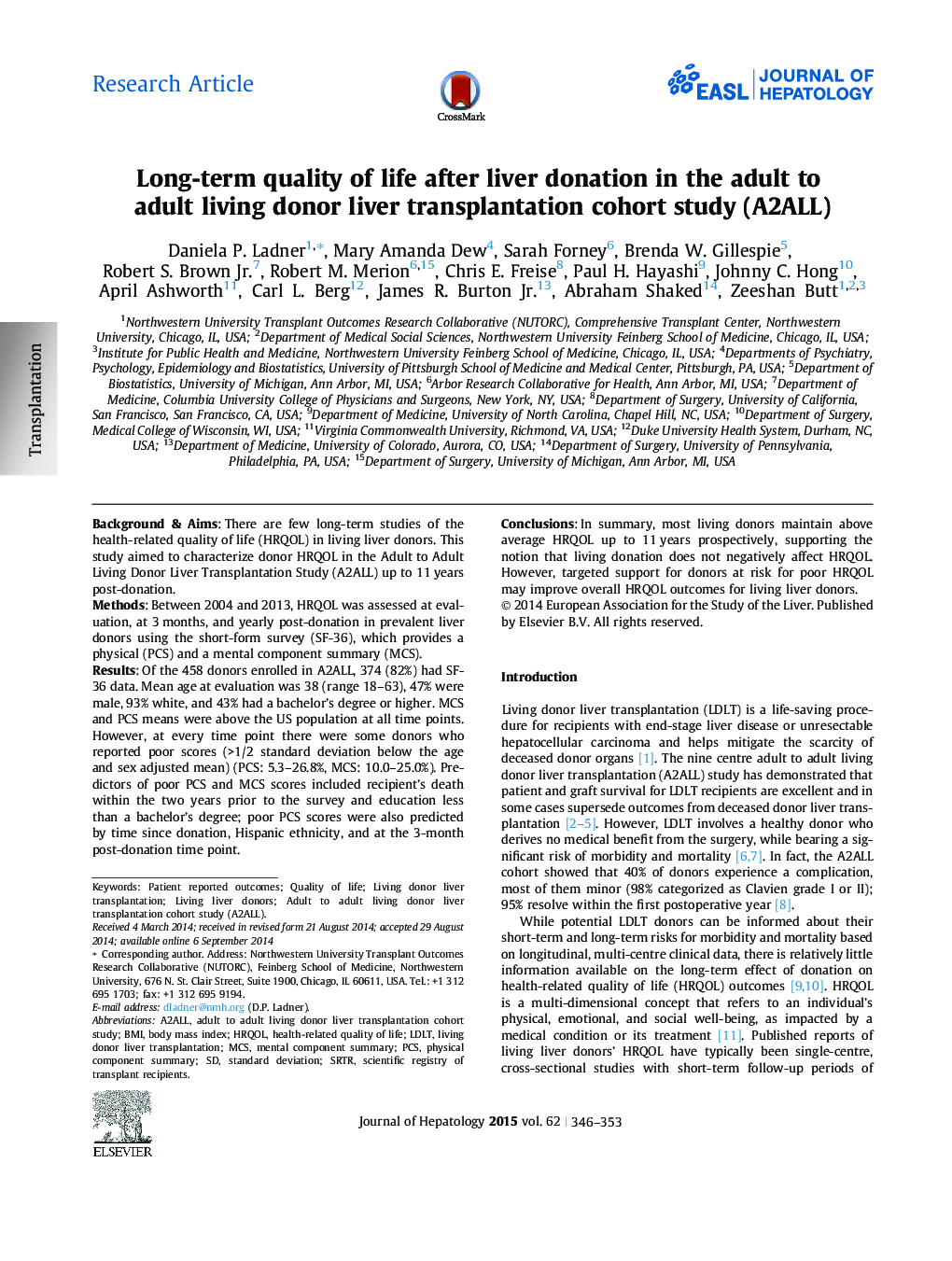| Article ID | Journal | Published Year | Pages | File Type |
|---|---|---|---|---|
| 6102590 | Journal of Hepatology | 2015 | 8 Pages |
Background & AimsThere are few long-term studies of the health-related quality of life (HRQOL) in living liver donors. This study aimed to characterize donor HRQOL in the Adult to Adult Living Donor Liver Transplantation Study (A2ALL) up to 11Â years post-donation.MethodsBetween 2004 and 2013, HRQOL was assessed at evaluation, at 3Â months, and yearly post-donation in prevalent liver donors using the short-form survey (SF-36), which provides a physical (PCS) and a mental component summary (MCS).ResultsOf the 458 donors enrolled in A2ALL, 374 (82%) had SF-36 data. Mean age at evaluation was 38 (range 18-63), 47% were male, 93% white, and 43% had a bachelor's degree or higher. MCS and PCS means were above the US population at all time points. However, at every time point there were some donors who reported poor scores (>1/2 standard deviation below the age and sex adjusted mean) (PCS: 5.3-26.8%, MCS: 10.0-25.0%). Predictors of poor PCS and MCS scores included recipient's death within the two years prior to the survey and education less than a bachelor's degree; poor PCS scores were also predicted by time since donation, Hispanic ethnicity, and at the 3-month post-donation time point.ConclusionsIn summary, most living donors maintain above average HRQOL up to 11Â years prospectively, supporting the notion that living donation does not negatively affect HRQOL. However, targeted support for donors at risk for poor HRQOL may improve overall HRQOL outcomes for living liver donors.
Graphical abstractDownload high-res image (78KB)Download full-size image
